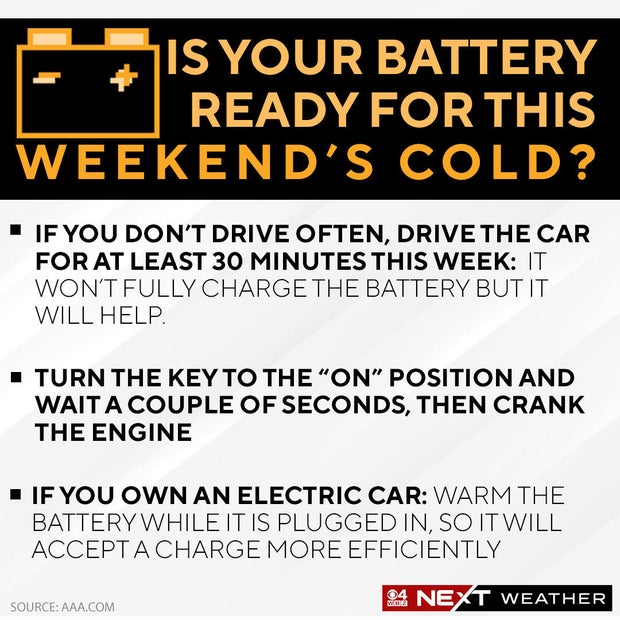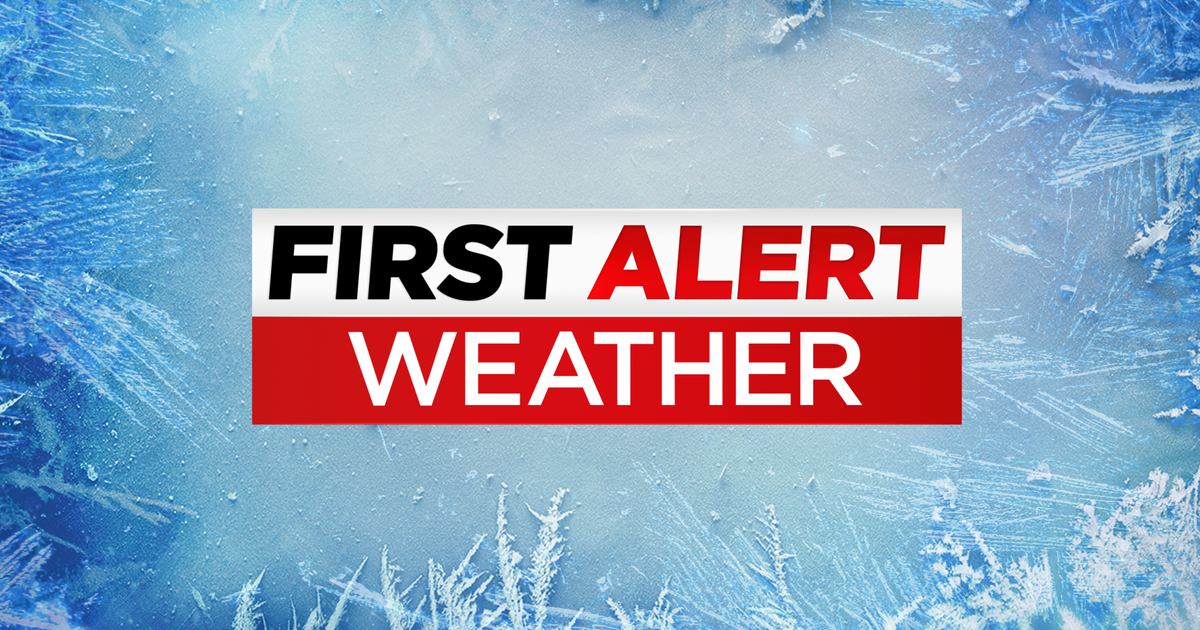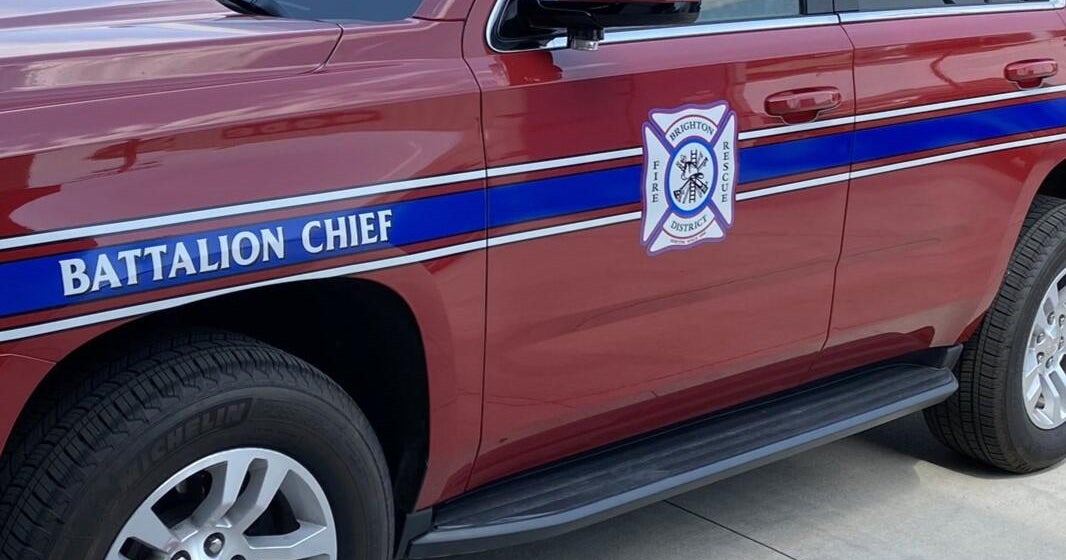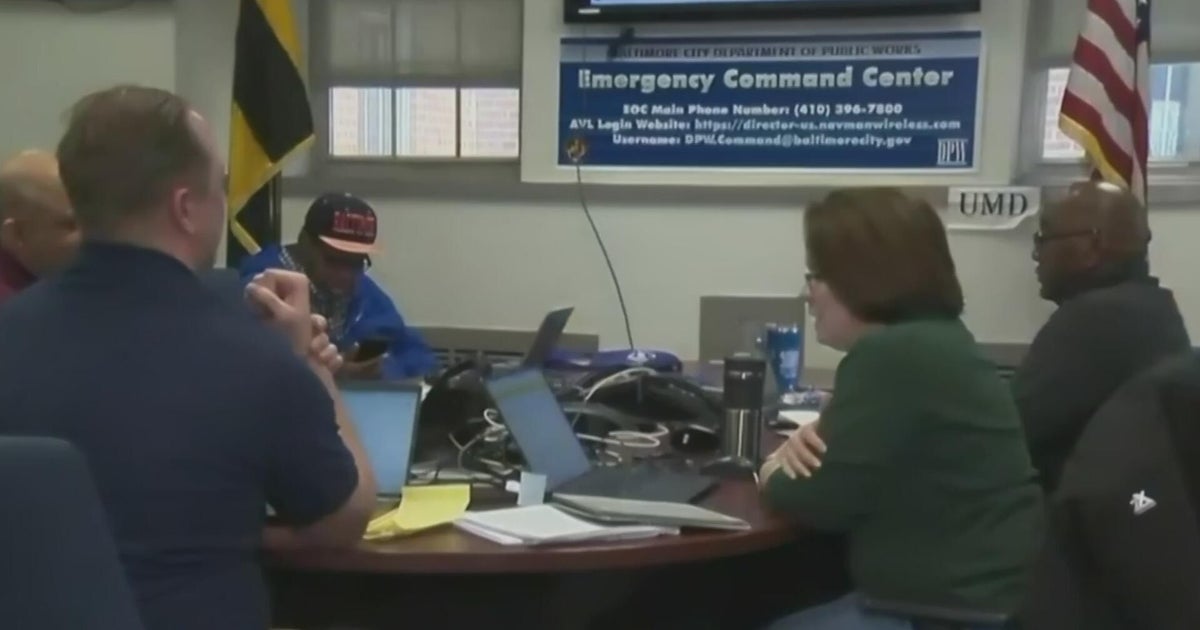How to avoid a dead car battery in the frigid cold
BOSTON - The Boston area is bracing for some of the coldest air we've seen in years or maybe even decades, and the last thing anyone wants is a car that won't start in the freezing temperatures when you've got some place to be.
So what can you do to make sure you aren't stuck with a dead car battery this weekend? WBZ-TV spoke to the experts at AAA for some tips.
"Here in New England, if your battery is five years old or older, you really want to make sure you have it checked before this weekend with these frigid temps that we're expecting," AAA Northeast spokeswoman Mary Maguire said. "We have dedicated battery trucks at AAA; we will come to you and we'll test your battery. If you need a new one, we'll put it in right away."
For those who don't drive that much, the recommendation is to take your car out for a drive for at least 30 minutes this week before the bitter cold comes.
"It won't fully charge the battery, but it will help," AAA says.
When you do go to start the car in the sub-zero temperatures, the agency says you should first make sure all lights and accessories are off. Turn the key so that it's in the "on" position and wait a few seconds, then try to start the engine.
"If the engine doesn't start in 10-15 seconds, stop, rest and try again," AAA recommends.
Once started, there's no need to let the car idle before you hit the road, AAA says. Just drive "gently" until you feel the heat kick in.
"Allowing the car to sit and warm up only warms the engine, not the brakes, suspension, or transmission," AAA says.
For those with electric cars, AAA advises that cold weather can reduce range by up to 50%. It's recommended that owners keep the car cabin and battery warmed while it's plugged in for a more efficient charge. They also say it's best to go at a moderate speed, and it may be more efficient to use seat heaters instead of the regular heater.
In addition to the battery concerns, Maguire said drivers should make sure to have a winter emergency kit in their car with windshield wiper fluid, a scraper, de-icer, and jumper cables. They should also check to see that their tires have a deep tread and aren't in need of replacing.








